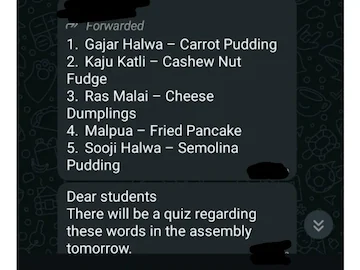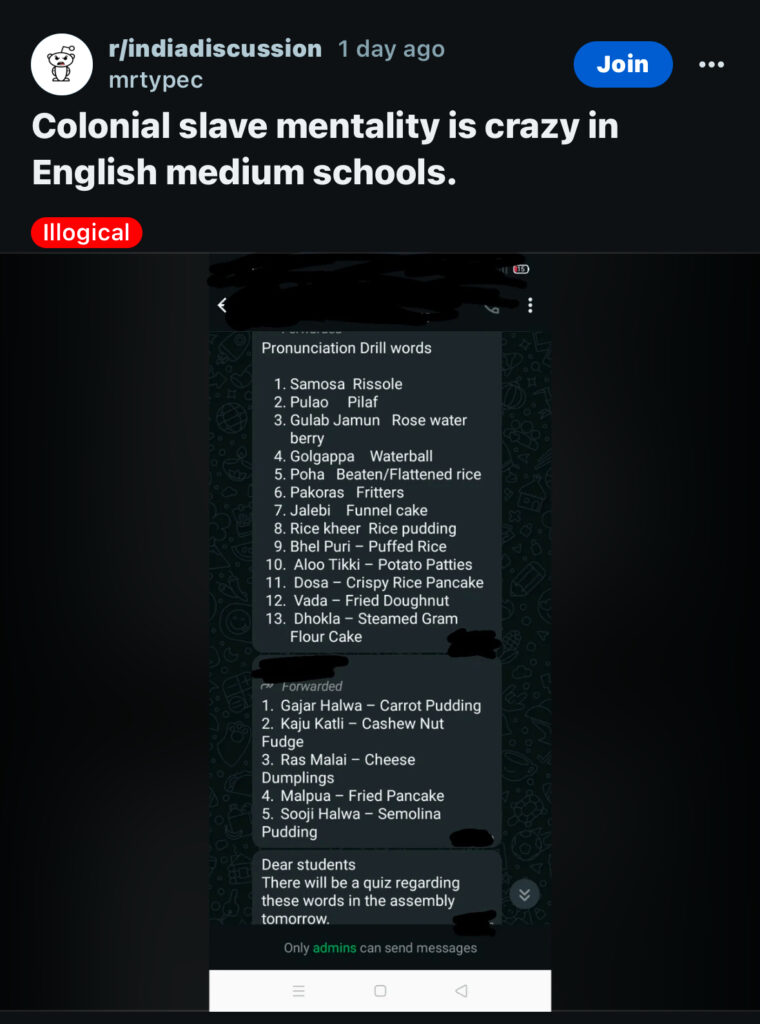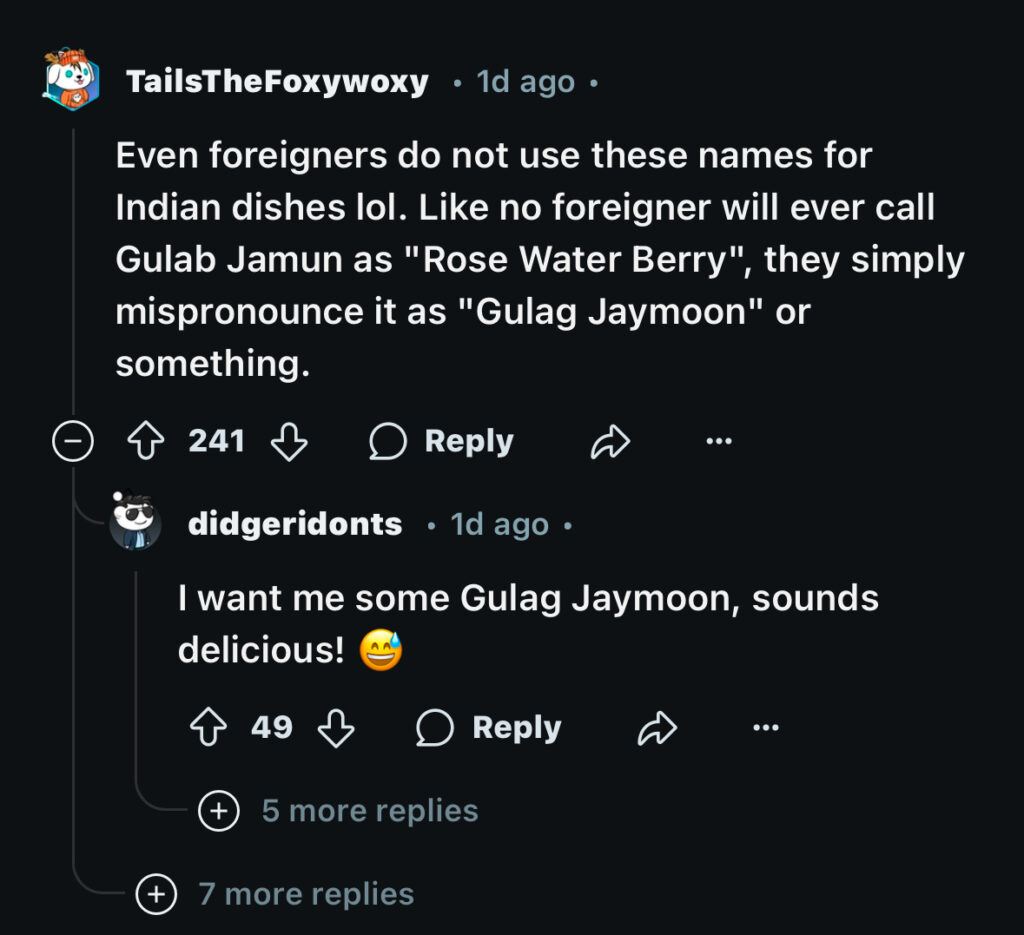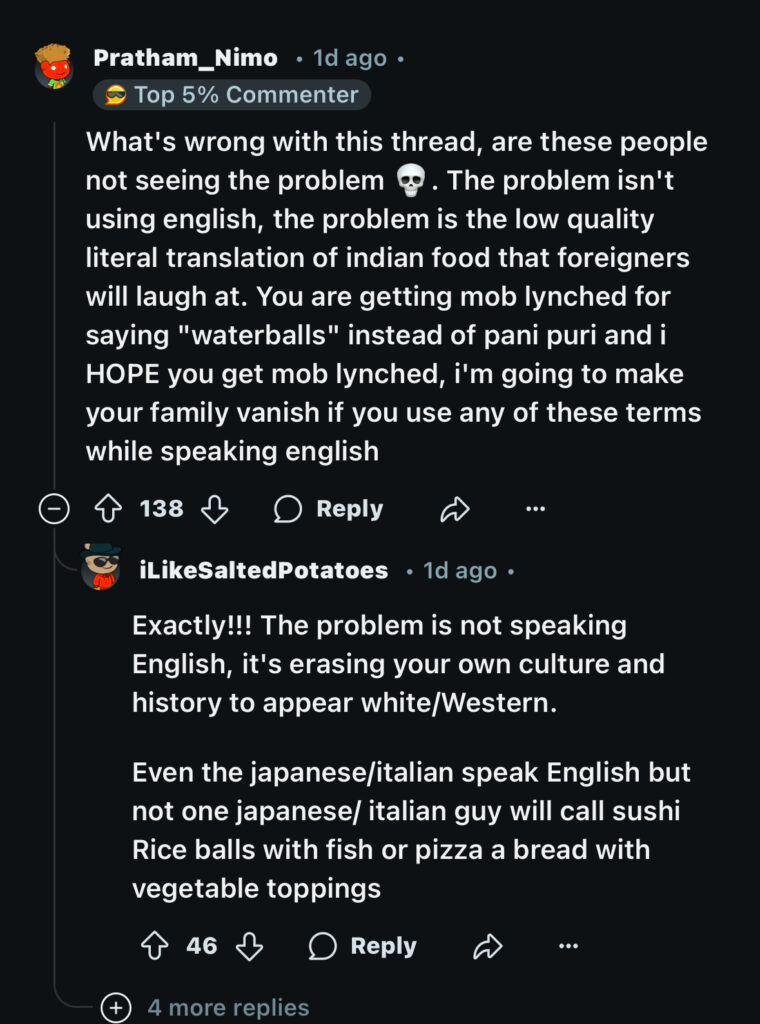If you thought renaming samosa as “rissole” was the limit of absurdity, think again. A viral Reddit post has sparked a fiery debate over a school’s decision to give traditional Indian dishes awkward English names in preparation for a quiz.
The post titled, “Colonial slave mentality is crazy in English medium schools,” revealed how classics like golgappa became waterball, gulab jamun transformed into rose water berry, and poha was rebranded as beaten rice. Naturally, desis are not having it.

Here’s a quick look at the hilarious—and infuriating—renaming spree that left the internet facepalming:
• Golgappa → Waterball
• Samosa → Rissole
• Dosa → Crispy Rice Pancake
• Gajar Halwa → Carrot Pudding
• Jalebi → Funnel Cake
• Pakoras → Fritters
• Kaju Katli → Cashew Nut Fudge

Internet’s Reactions
Desi netizens didn’t hold back their anger (and wit). One user said, “No one calls gulab jamun rose water berry, not even foreigners!” A user hilariously pointed out how even international foodies prefer mispronouncing desi names over such tragic translations. Another said, “Why erase the essence of our culture?”


Someone compared the lack of translations for ramen, pho, and pizza, questioning why Indians feel compelled to “westernize” their own heritage. This spicy comment suggested flipping the script by translating Western foods into literal Hindi names.
Many saw this as a deeper cultural issue, with one user adding, “Britishers really did a number on us.”
Why Is This Such a Big Deal?
While renaming dishes for “clarity” might seem harmless, it raises questions about cultural erasure. The heart of the debate isn’t just about bad translations but about how this reflects deeper insecurities tied to colonial hangovers. If Italy can proudly call pizza pizza, why can’t we stick with pakoda?
The post, which has over 500 upvotes on Reddit, has left people asking why schools feel the need to dilute culture rather than celebrate it. As one user wisely put it, “Call it pakoda, and if someone doesn’t get it, teach them what it is. You don’t need to translate identity.”
In a world that celebrates culinary diversity, maybe it’s time we do the same for our golgappas.

















